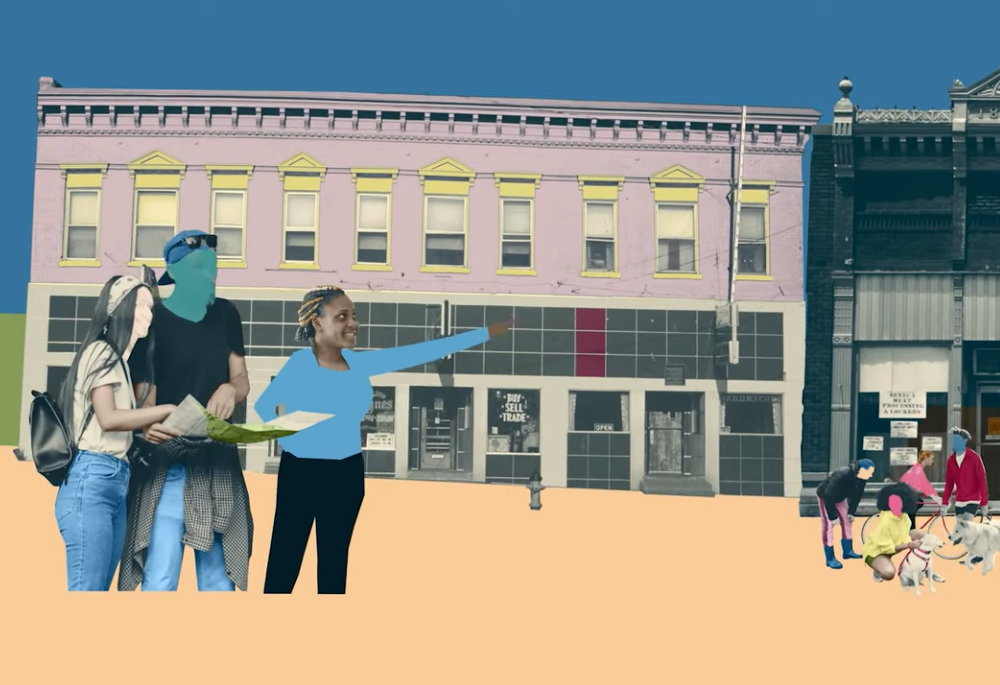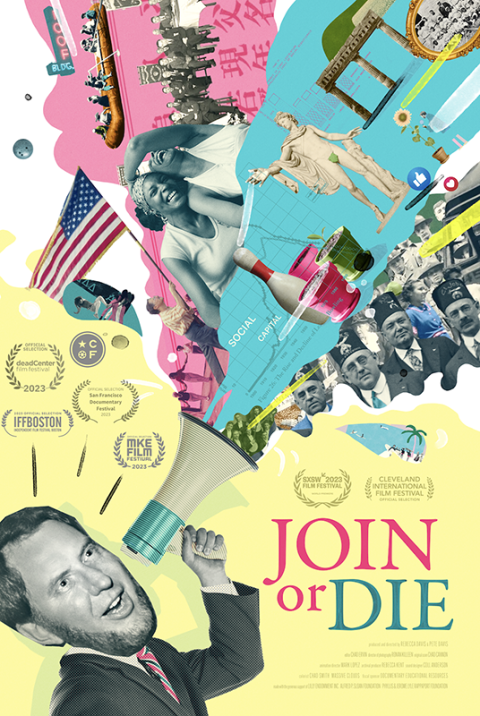
A graphic featured in the trailer for "Join or Die" (NCR screenshot/YouTube/Delevan Street Films)
Could a lack of a formal group affiliation diminish our lifespan? It's an intense diagnosis, but one made by the new documentary "Join or Die." The fate of America depends on engagement on a micro level, the film insists, and committed community gatherings will save our democracy. These are bold statements to make, but at the core of this political film is a very Catholic concept: a commitment to the common good.

The movie poster for "Join or Die" (Courtesy of Delevan Street Films)
The film, premiering via hosted screenings across the country (visit putnamdoc.com to host a screening), situates political/social scientist and author of the famed book Bowling Alone Robert Putnam at its center, but it is not a biopic. Rather, Putnam is the anchor for the larger case being made: that the average American can and should contribute to the ongoing work of democracy through organized groups that contribute to their communities, cultivating social capital and reducing the effects of isolation and loneliness.
Featuring big names like Hillary Rodham Clinton, Pete Buttigieg, Eddie S. Glaude Jr. and Vivek Murthy, the film demonstrates the decline in community and religious gatherings as relevant not only to the health of our nation, but also to that of its people. "Join or Die" makes bold claims about the impact of community life on personal health, such as a correlation between pronounced loneliness and shortened lifespan — thus, the pithy title.
The political references are not insignificant in this film, but the religious connotations are what stand out. Robert Putnam was raised Methodist in Ohio, converted to Judaism to marry his beloved wife Rosemary, and is reverential of Roman Catholicism, as he proclaimed during the panel that followed the film's premiere. Does it stem from his years studying regional governments in Italy, a country where church and state are admittedly intertwined? Or is it rooted in his academic expertise being called upon by pontifical academies and Pope Francis himself? One could argue that it may be due to the communal nature of Catholic sacramental and liturgical life, which dovetails so perfectly with the value Putnam places on organization and community.
The local groups highlighted in the film are not gathering for the sake of gathering — though the benefits of social experiences are not without merit — but to contribute to the good of their community while doing so. Experiences of service and philanthropy are highlighted alongside community dinners and member swearing-in. Members of these community organizations have a greater connectedness to one another and the needs of those around them, as well as formalized avenues through which to advance the common good. What is proposed in the movie — and in Catholic life — is that while there may be many treatments, the fastest-acting antidote to the epidemic of loneliness is a commitment to community.
Advertisement
The documentary was easy for even a political and sociological neophyte like me to follow. With bright colors, plucky animation, clear narration and clever editing, it keeps the viewer entertained while engaging in deeper work, causing us to ask: What is the state of our democracy, and what role can I play in contributing to the broader system, including the people around me? How does community and connection benefit not just me, but the good of our society as a whole? These questions arise for all viewers but hold particular importance to people of faith, because our civic and societal responsibilities cannot remain separate and secular.
In the end, "Join or Die" leaves viewers contemplating the stark command of the title. Remaining in our bubbles of isolation is a death sentence; not only to democracy, but to the common good and, in the end, to ourselves.
Editor's note: Contributor Nicole M. Perone is married to NCR digital editor John Grosso.








